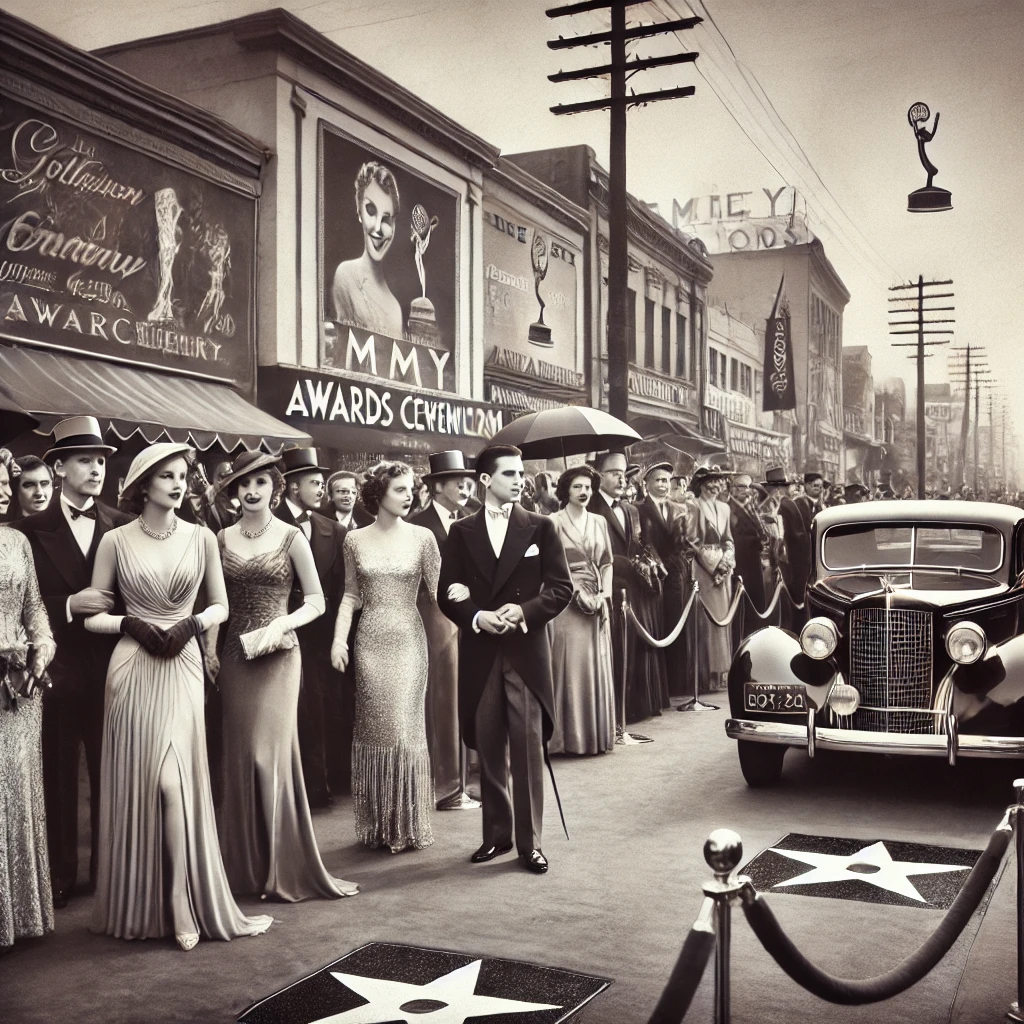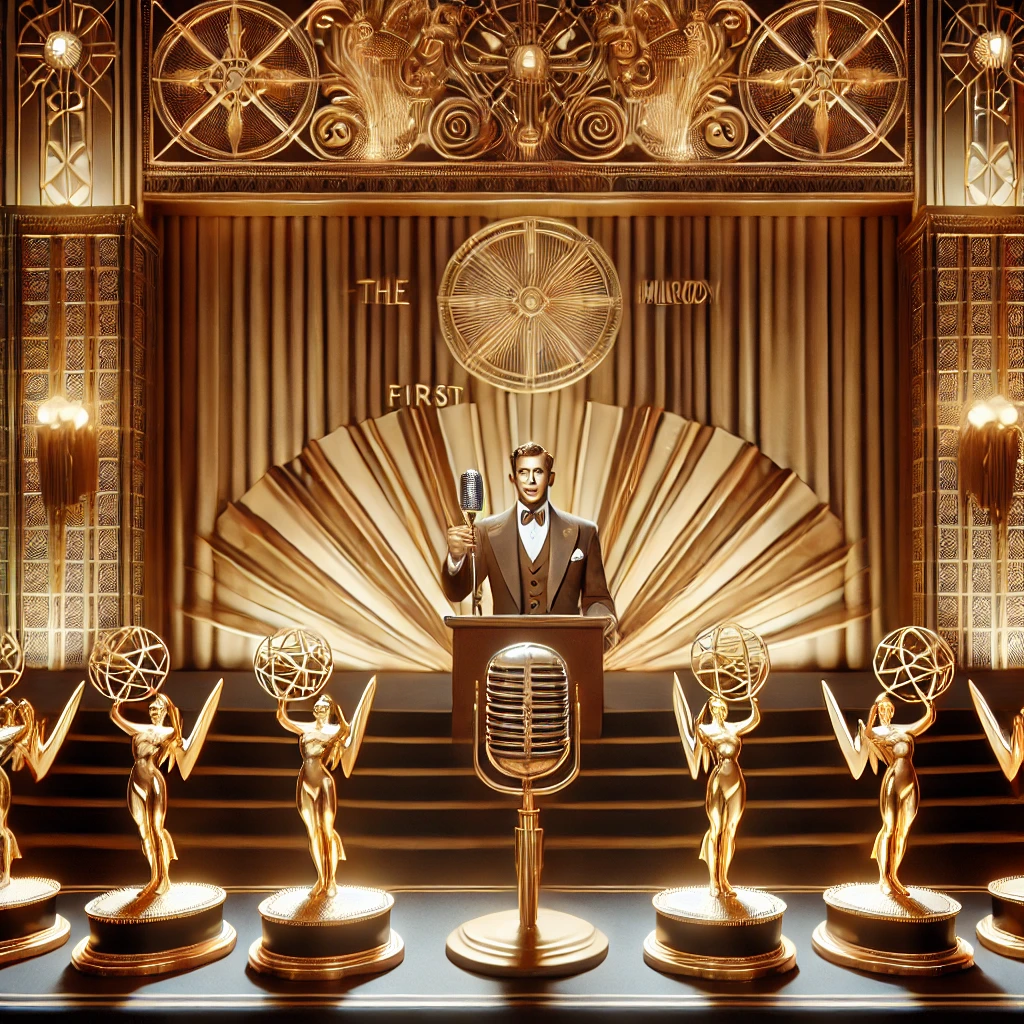On this day in 1949, the first Emmy Awards ceremony was held, marking the dawn of a tradition that would grow to become one of the most prestigious annual events in entertainment. Organized by the Academy of Television Arts & Sciences (ATAS), the event took place at the Hollywood Athletic Club in Los Angeles. At the time, television was still in its infancy, with only a few thousand households owning a TV set. Despite its limited audience, the ceremony set the stage for recognizing excellence in a medium that would soon revolutionize entertainment.

The inaugural event was modest, with only six awards presented. The first Emmy ever awarded went to Shirley Dinsdale, a ventriloquist and star of the children’s program Judy Splinters, in the “Most Outstanding Personality” category. This momentous occasion underscored the Academy’s commitment to celebrating talent across all facets of television production, from actors to technical innovators.
The Significance of the First Emmy Awards
The first Emmy Awards were significant not only for honoring individual achievements but also for legitimizing television as an art form. In the late 1940s, many still regarded TV as a novelty rather than a serious medium. By establishing an awards ceremony akin to the Oscars for film and the Tonys for theater, the ATAS helped elevate television’s status and credibility.
This milestone also reflected the rapid growth of the industry. Post-World War II innovations had made televisions more affordable, and networks like CBS and NBC were expanding their programming. The Emmys offered a platform to spotlight these advancements and inspire higher standards of creativity and technical excellence within the industry.

A Legacy That Endures
Over the decades, the Emmy Awards have evolved in scope and significance. Today, the Emmys encompass multiple ceremonies, including the Primetime, Daytime, International, and Creative Arts Emmys, recognizing achievements across a wide array of genres and technical disciplines. The event has grown into a global celebration, with millions tuning in from around the world.
The enduring relevance of the Emmys lies in their ability to adapt to the ever-changing landscape of television. As streaming platforms like Netflix, Hulu, and Amazon Prime Video have risen to prominence, the awards have expanded their criteria to honor excellence in digital content. This inclusivity ensures that the Emmys remain a vital barometer of quality and innovation in the entertainment industry.
The Impact Today

The Emmy Awards continue to shape public perception of television, spotlighting groundbreaking shows and performances. Winning an Emmy is not just a mark of excellence but also a career-defining achievement that can propel artists and creators to new heights. Shows like The Sopranos, Breaking Bad, and Fleabag owe part of their cultural resonance to the recognition they received from the Academy.
Furthermore, the Emmys play a crucial role in preserving the history of television. By honoring both new and veteran talents, the awards provide a living archive of the medium’s evolution. This acknowledgment of excellence serves as a benchmark for future generations of creators.
From its humble beginnings in 1949 to its current status as a global phenomenon, the Emmy Awards have become an enduring symbol of excellence in television. They remind us of the power of storytelling and innovation, celebrating the creators and performers who bring unforgettable moments to our screens.
